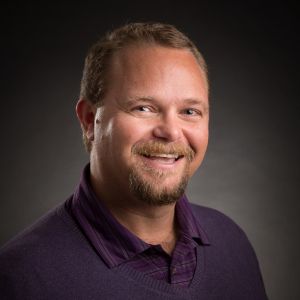St. Jude Family of Websites
Explore our cutting edge research, world-class patient care, career opportunities and more.
St. Jude Children's Research Hospital Home

- Fundraising
St. Jude Family of Websites
Explore our cutting edge research, world-class patient care, career opportunities and more.
St. Jude Children's Research Hospital Home

- Fundraising
Healing suffering through compassion
Justin N. Baker, MD, talks about healing suffering through compassion during a recent speech at TEDx Memphis. Video courtesy of TEDx Memphis.
Preparing for my talk at TEDx Memphis allowed me to reflect on my St. Jude work from a broader perspective.
As the Chief of the Division of Quality of Life and Palliative Care, St. Jude has given me the opportunity to speak around the world about these topics, but I’m usually speaking to a medical audience. Because the TEDx audience members are from all walks of life, I couldn’t start from the same set of assumptions.
Not only did I learn something from the process, but it was a gift to be in a position to empower people to be compassionate in their own way.
Suffering is universal. Because of that, we all have a role to play.
We can help heal someone who is suffering by opening our heart to suffer with them ... by showing them compassion. That’s what I get to do every day at St. Jude, but to think that my talk was an extension of that healing work—that someone might think, “Oh wow, this applies to my life. I’ll try to show people more compassion, too!”—that is incredible to me.
I like to think my talk and the ideas in it give people more tools in their toolbox of caring, because they have an awareness that their avoidance is causing more suffering and alienation.
Now they know what to do. More importantly, they know why it matters.
The experience backstage with the other TEDx speakers was also special. These leaders are passionate about other issues, but in a way, we were all there for the same reason. We’re not OK with the status quo and are dedicated to make a change for the better.
An intersection of compassion
Two other unexpected gifts made that day special. While backstage, I realized it was Danny Thomas’ birthday. I knew I had to mention it and wish him happy birthday. That was my plan as I waited to go on, looking out on a packed house.
In introducing me, journalist and emcee Geoff Calkins shared with the audience that he was a childhood cancer survivor in 1968, when survival rates weren’t as good as they are today. Imagine: Geoff introducing me was directly related to the work Danny Thomas started that we continue to this day. It was quite emotional for me from the moment I walked out on stage.
I had the normal nerves everyone has, but I also felt a special pressure to do a good job. St. Jude has given me the opportunity to be who I am, and God had called me to be in that moment.
Once I got on stage, I found the crowd was with me. The same packed house that seemed daunting just moments before became reassuring the longer I talked. There is so much love for St. Jude in our community, and I could feel it coming back from the audience. I could see the smiles on people’s faces as we remembered Danny Thomas on his birthday. I could see people moved to tears, and I felt their relief when they could laugh.
The entire event was fantastic, and I left very proud of Memphis. It was real gift to be a part of TEDx, and I am grateful to everyone who made it happen.






